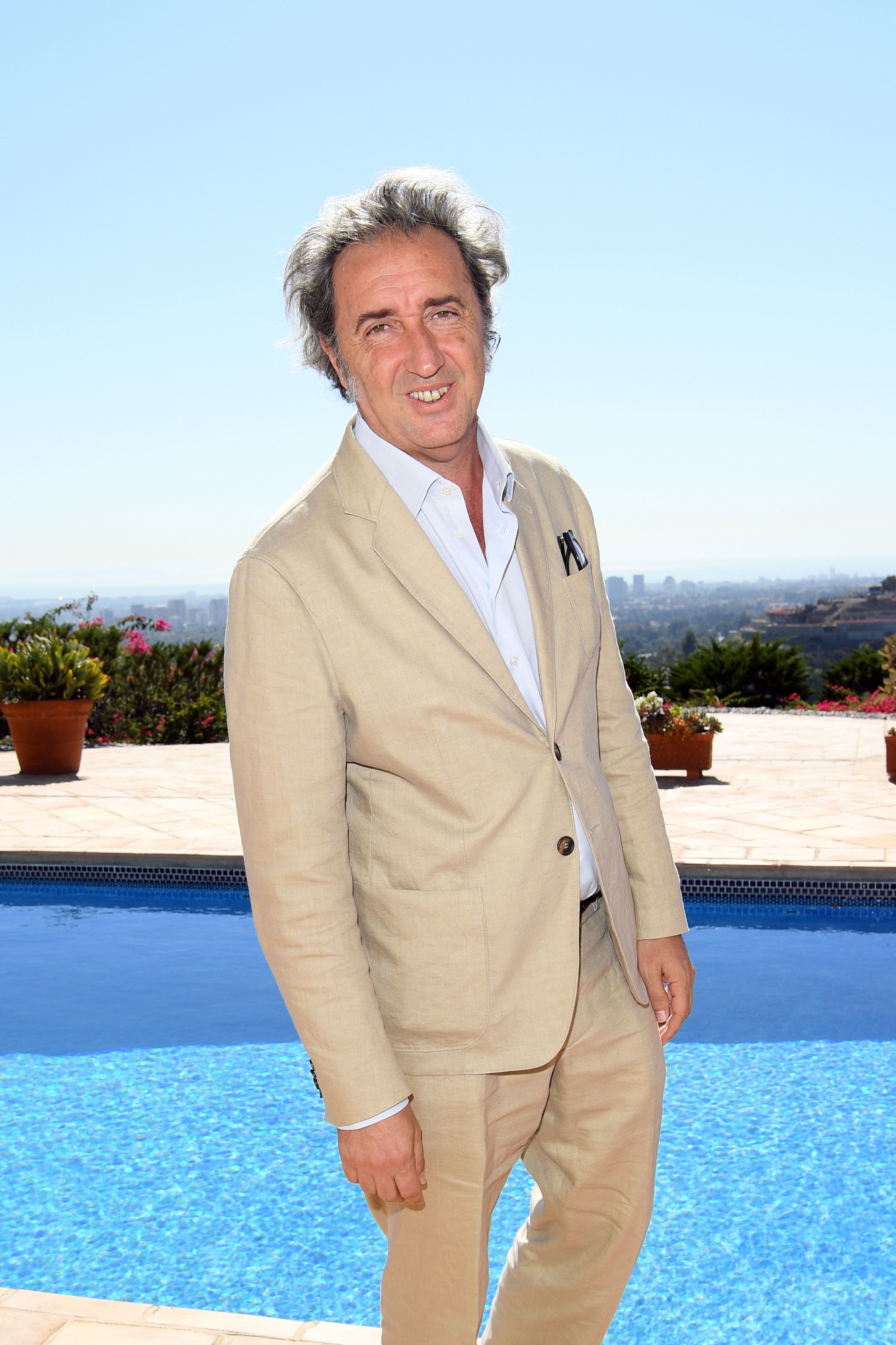
- Interviews
Paolo Sorrentino on Lust, Religion and ‘The New Pope’
We met Italian director Paolo Sorrentino in his home in Los Feliz, Los Angeles – where the director moved six months ago with his wife and son – to talk about the HBO series The New Pope, a sequel of The Young Pope, which he created, co-wrote and directed. Sorrentino, whose The Great Beauty won the Golden Globe (and an Academy Award) for Best Foreign Film in 2013, is busy preparing a new HBO series as well as the movie Mob Girl, based on Theresa Carpenter’s novel (Jennifer Lawrence will play the lead). Sorrentino, 49, born in Naples, smoked a cigar and talked thoughtfully and eloquently as any “intellectual”, as he is, would do. In The New Pope Jude Law returns as Pope Lenny Belardo, aka Pius XIII, hanging in a coma fighting for his life after a series of failed heart transplants, along Silvio Orlando as Cardinal Voiello. John Malkovich is the new cast addition as Sir John Brannox, a suave British aristocrat who reluctantly accepts the role of Pope (with the name of John Paul III) while Belardo is in his coma and the world prays for his recovery. Cecile de France returns as secular “consultant” Sofia Dubois.
Mr. Sorrentino, you once again managed to be very irreverent toward the Vatican. Can you talk about it?
I didn’t intend to be irreverent or aggressive toward the Catholic church. On the opposite, in a world in which every priest is seen as a suspect of some kind of abuse, I try to shine a positive light on the priesthood. In The New Pope we tell a story of priests with all their flaws and weaknesses, but there’s more: there’s the priest as a human being who strongly believes in the “good” he’s trying to do. I try to be on their side: priests are neither saints nor sinners. They are like any of us. The problem is their unique vocation, their relation with God, which is more and more overwhelmed by scandals.
Are you promoting the concept of the Church as people knew and believed in?
Partly. Let me reiterate that the figure of the priest is psychologically a very complicated one. I did a lot of research while preparing for this series. A priest is not in charge of his own destiny: he feels he’s been elected by an Abstract Entity, which is God. He lives in a world that is predominantly male, in which the female doesn’t exist, or is marginal. He lives in a community condition, but at the same time, he must profess the idea of family, without having a family. That’s why I say the priest is a very complex figure. Can you imagine a Pope?
In The New Pope we see women sexually attracted to Jude Law’s Pope. Is it really so?
There’s nothing more sexually arousing than a taboo, isn’t it? Obviously with Jude’s character we played in a hyperbolic way, him being so handsome and sexy. John Malkovich is also sexy, in his own way. The New Pope plays around the mysterious way a male can be arousing to… anyone.
Let’s talk about Cecile de France’s character, Sofia: does a non-religious female consultant to the Vatican exist in real life?
Yes, I often read about female figures asked to help and work with the Vatican in various roles. Sofia’s character is my own invention, of course, but she’s based on reality. She underlines the duality many priests have to face: the renunciation to human love in favor of God. Priests and nuns cannot get married, nor have sexual liaisons. It’s a huge sacrifice. Is it against nature? The former or the latter? I faced this dilemma, this confusion. In The New Pope, amorous temptation is at the center of it all. Maybe not the sexual temptation; but the emotional temptation for sure. Nature, or instinct, against dogma. What an intimate war!
You have repeatedly the tv showing images of Islamic threats. Why?
When I started thinking about this new series it was the time when terroristic attacks were happening in France, throwing a dark light on our European existence, and from there I had the idea of how the Catholic Church faces Islamic fundamentalism and how fundamentalism is a danger. Not only the Islamic one but in general, fundamentalism is a danger that can grow in any religion, including the Catholic one. It was in the past and it could come back in the future. You might think that Crusades happened a long time ago, but the attitude of Catholicism in Africa, for example, could suggest a form of catholic fundamentalism. It is obviously a futuristic but not totally inconceivable scenario which the series tries to face.
Are you worried about this kind of fanaticism?
I am terribly worried about it. I’m scared of everyone prone to deliver stern with self-entitled certitude It’s wrong and dangerous. A dogmatic, fanatic judgment that doesn’t allow room for doubts nor discussions: thatWill there be a third season?
I thought about it and I would like to, especially to go back and work with these actors whom I love. I have an idea, it might not be a sequel, but a prequel.. we’ll see!

